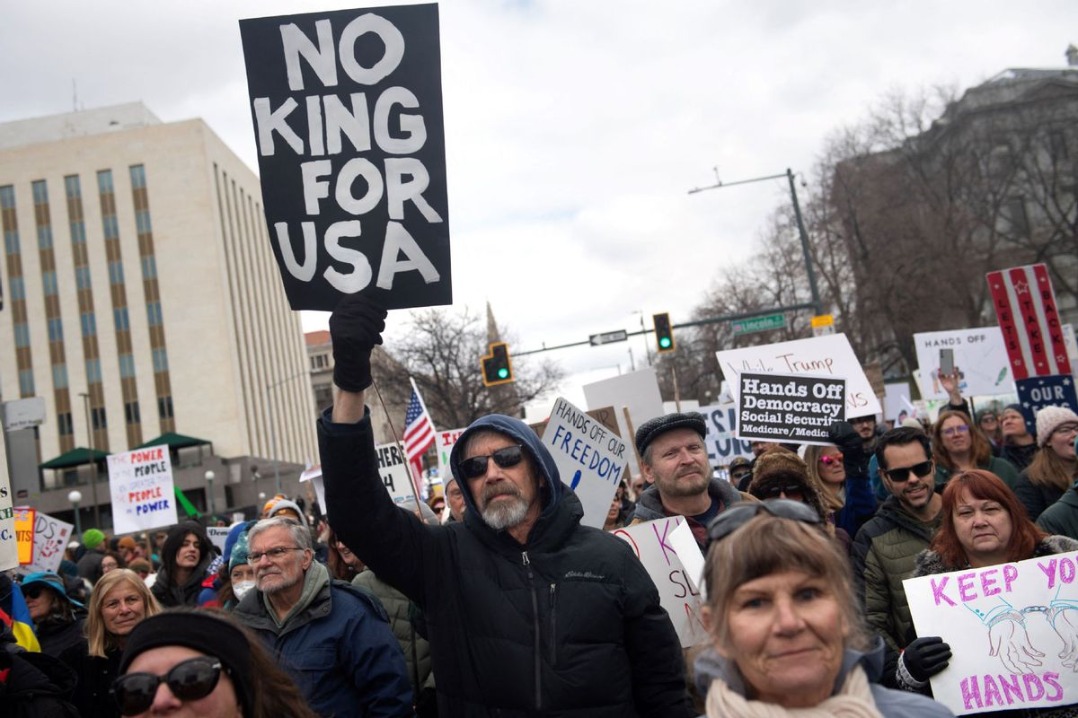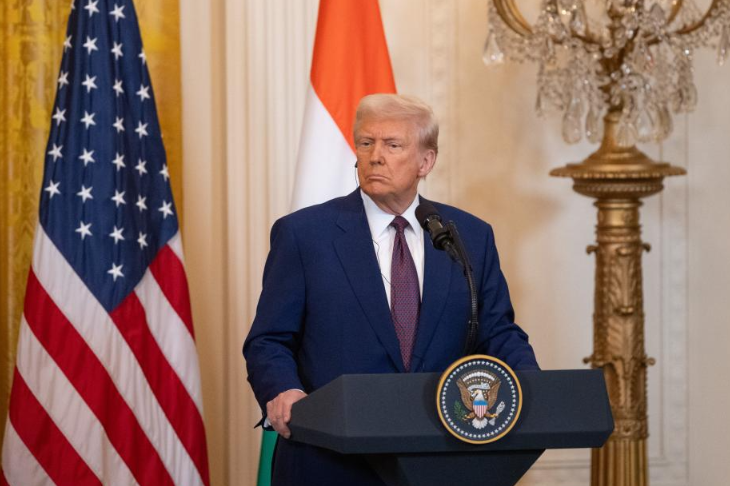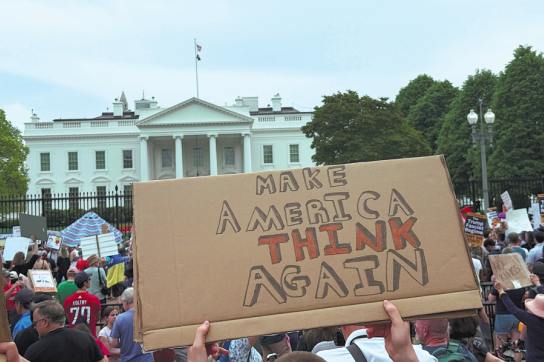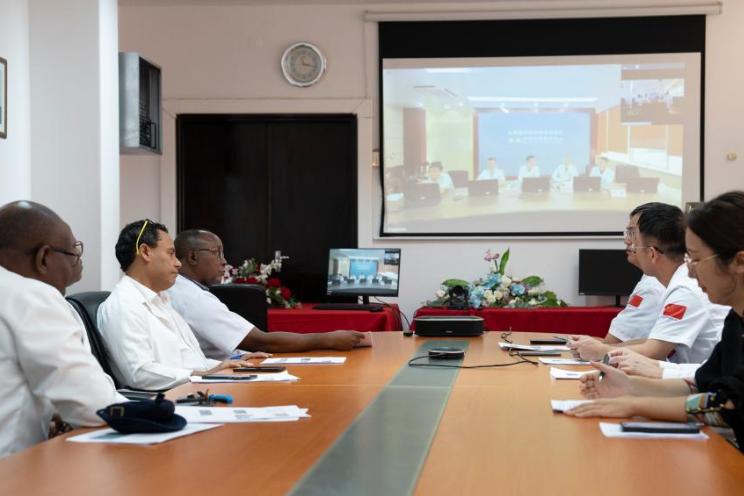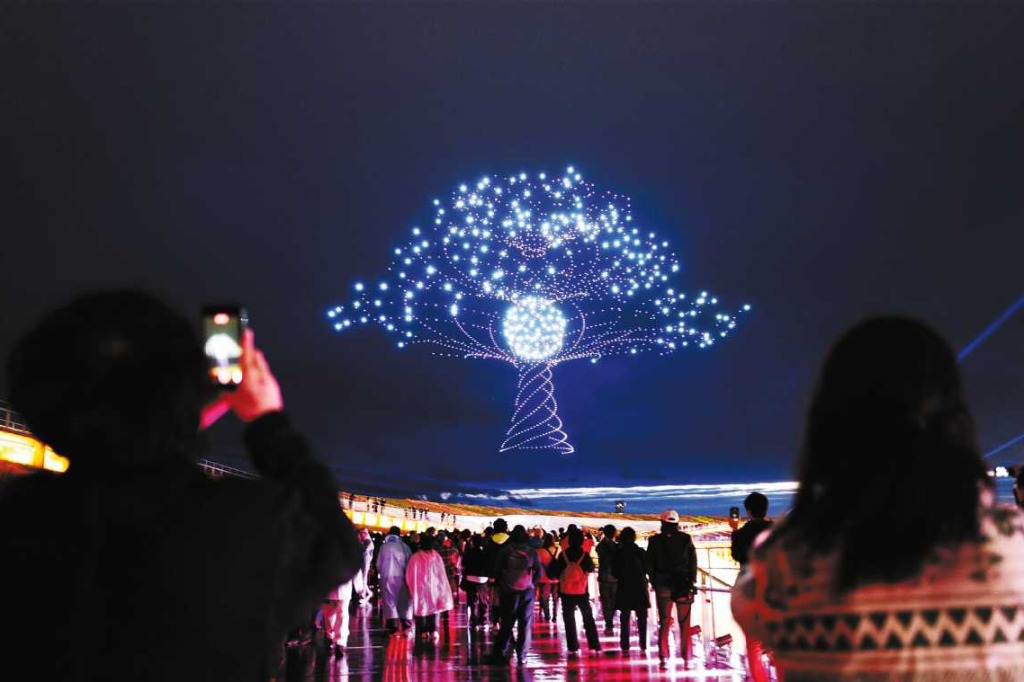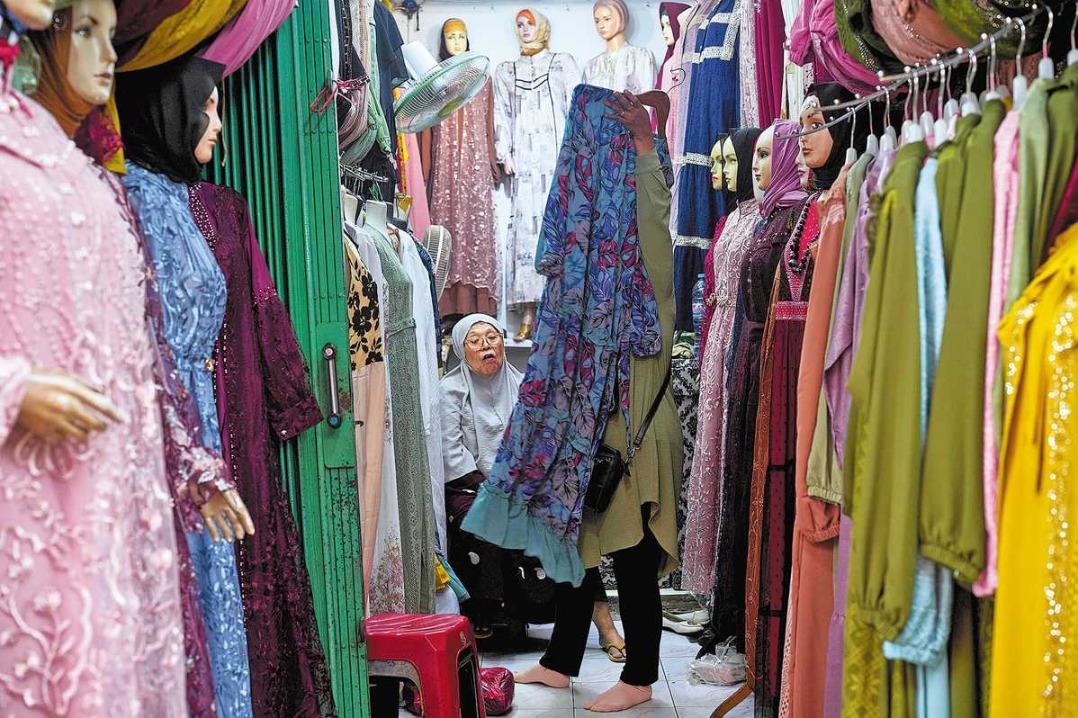Scapegoating to fail in a world trusting science and justice

Charles M. Blow, a columnist at the New York Times, expressed his deep concerns in an article – considering more than 30 million infections in the US, and given the perpetual problem of increasing gun violence and racial discrimination fueled by the pandemic, COVID-19 could leave "lingering rage" for many years and even decades to come, even after the pandemic is successfully contained in the US.
Bigotry and selfishness will not defeat the virus. Rather than hiding in the corner and playing the blame-shifting game, the US should be honest with its mistakes, mobilize its resources and put them where they are most needed, and solve its own problems in a down-to-earth manner.
Playing the geo-political game will only jeopardize origin tracing
Tracing the origin of the virus is merely a pretense covering the US' real motive to suppress China.
However, in the eyes of Massini, an Italian Sinologist, Americans already learnt the taste of frustration. As Massini pointed out, the Biden administration tries to "attack China" via origin tracing and unite its European allies against China. Biden wants to prove "China has gotten a problem", but China is in very good shape, just as it was one year ago, two, three years ago and even a decade ago. All the evidence is pointing to one fact – the US that used to be in good shape is now in trouble.
This is well manifested by the G7 Summit, behind its superficial image of "solidarity" are countries seeking their own interest, and some countries are unwilling to follow the US' lead. British Prime Miniter Boris Johnson said he does not believe the COVID-19 virus escaped from a Chinese lab in Wuhan; and French President Emmanuel Macron said the G7 is not a club that is hostile to China.
A Pew Research Center survey on June 30 found "a dramatic increase in the share of respondents who say China has handled the pandemic well". According to the survey, there are multiple reasons behind this positive feedback, such as China's successful containing of the epidemic internally, its quick vaccination campaign and its engagement in global vaccine cooperation.
Even Kurt Campbell, the coordinator for Indo-Pacific affairs of the US National Security Council, has recently said that the US behaved very poorly in the first half of the "vaccine diplomacy" race, calling it "the worst in modern history" and admitting it's a disaster on all fronts. But he also said that in the second half of race, the US will act more proactively and will in particular intensify support for its allies in Southeast Asia, promising that support will not only come from America alone, but also the "Quad" (namely the US, India, Australia and Japan).
"Vaccine Diplomacy" and the "Quad" – the US is again falling into the paradigm of "small circle politics". The COVID-19 pandemic mirrors the visions held by a country. As President Xi Jinping pointed out, "viewed from the perspective of ‘my own country first', the world is a cramped and crowded place of constant, fierce competition. Viewed from the perspective of ‘a global community with a shared future', the world is a vast and broad place full of cooperation opportunities".
If the US continues to stuff its geo-political ambition into the box of "vaccine diplomacy", one can expect another disaster in the second half of the game.
At a time when COVID-19 is still raging around the world, helping others is also helping oneself. Only by understanding the problem through the lens of science and reason can we end this fight soon and cope with the next emergency more effectively. Stronger voices of justice in the international community have shown that in this fight between truth and lies, and science and prejudice, politicizing origin tracing and hyping up conspiracy theories may get you noticed, but it won't lead you anywhere in the end.
After all, history is written with truth and fact.

















